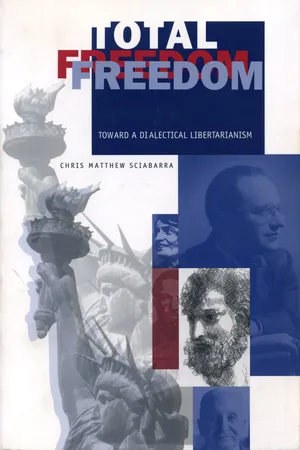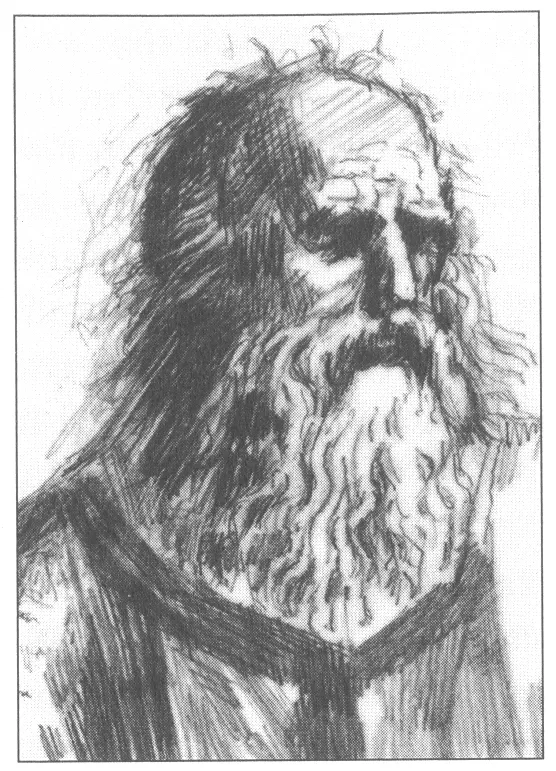![]()
Part One
Dialectics: History and Meaning
![]()
1
Aristotle: The Fountainhead
J.D.G. Evans, in his book Aristotle’s Concept of Dialectic (1977, ix), tells us that the very “notion of dialectic is a piece of intellectual currency which, like the currency of cash, is more used than understood.” And the supreme dialectician himself, Hegel, thought that dialectic had been “most misunderstood” by ancient and modern thinkers alike ([1831] 1969, 831).
Like many concepts in Western philosophy, dialectic traces its linguistic roots to ancient Greece. Homer used the verb dialegesthai, which meant, variously, “to discuss” and “to pick out” (dialegein), suggesting a high-level mental activity of deliberation (Sarlemijn [1971] 1975, 27). Dialectic, or dialektikē, is cognate with both dialegesthai and dialogos, “dialogue” (Irwin and Fine in Aristotle 1995, 577).1 So it is not surprising that one can locate the first manifestations of dialectic in the classical Greek dialogues, wherein the give-and-take of discussion was viewed as the means to wisdom.
In pre-Socratic philosophy, one finds a microcosm of virtually all that was to come. Among the Ionians, one finds notions of process and change in the thought of Heraclitus.2 Among the Sophists, one finds the rudiments of the “question-and-answer” method in the thought of Protagoras, and the verbal matches that came to be known as “eristic” (disputation) in the practices of Euthydemus and Dionysodorus (Ryle 1966, 113, 119).3 Among the Eleatics, one finds rudiments of the doctrine of internal relations in the thought of Parmenides (Ollman 1976, 24).4 And while Aristotle is said to have credited Empedocles as the discoverer of rhetoric, he often spoke of Zeno as the inventor of dialectic (Ryle 1966, 112).5 Praised as that “subtle dialectician” by Kant ([1781/1787] 1996, 513; B530/A502), Zeno probed the paradoxes of motion. Though he never used the word “dialectic,” he engaged in a conversational method that deduced absurd consequences from the accepted premises of his opponents. This “reduction to impossibility” was one of the key dialectical techniques later perfected by Socrates (Robinson 1953, 89–92).
The gadfly of the ancient Greeks, Socrates systematically cross-examined his interlocutors in a way that was not merely destructive—in the manner of the Sophists—but implicitly constructive.6 Socratic dialogue embraced what Mure (1932, 29) has called “complementary moments of a single process”—refutation and discovery—in the shared pursuit of truth and virtue.7 It was a dialogical process of interrogation known as elenchos, a hermeneutical dialogue in which one speaker follows the logic implicit in the statements of another, bringing forth awareness of contradictions and unintended consequences through dynamic interaction (Bruns 1992, 43).8
However, as exemplified in the early dialogues of Plato, the Socratic elenchos was more pedagogical than methodological (Robinson 1953, 97). Ultimately, “dialectic” became Plato’s name for these Socratic practices (Irwin 1988, 7).9 For Plato, they were joined inexorably to the synoptic quest for transcendent truth.
Plato and the Stillbirth of a Tradition
Among the ancients, such as Diogenes Laertius, Plato was often recognized as the true founder of dialectic (Hegel [1873] 1975, 117). And yet, as one of the greatest of Western philosophers, Plato is more aptly described as the “grandfather”—rather than the father—of dialectical inquiry (Rescher 1977, xi). He makes an invaluable contribution to our understanding of the need for comprehensiveness in the analysis of any problem. Nevertheless, this contribution is severely compromised by his penchant for the synoptic, what the feminist theorist Cynthia Hampton (1994, 236) calls “the longing for the divine.” It is a longing that pushes Plato into the abyss of strict organicism, an attempt to see the whole and its internal relations from an illusory external vantage point.10
As is the case with many other philosophers, I must qualify my account with the caveat that Plato is notoriously difficult to interpret, that there is not simply one “correct” view of him. It is not my intention to caricature Plato or any other thinker. But Plato’s writings can be understood on several different analytical levels; often, my interpretation of Plato’s works is as much an engagement with the Plato of tradition as it is with his texts, and much the same can be said of my interpretation of the works of Hegel, Marx, and others. This does not mean that the task of textual interpretation is a hopeless miasma of misinterpretation; it simply means that we must be very sensitive to the complexities of translation, authorial intention, and the philosophical evolution of ideas as they are made relevant to each succeeding generation.
First, we would do well to ask what is right in Plato’s conception. In the Theaetetus, he speaks through Socrates:
It is the “turn to philosophy” that Plato celebrates here, and, in this turn, it is from the identity of dialectic with philosophy that he draws strength.11 While Aristotle later correctly questions this identity, even he accepts the important role played by constructive dialogue in the articulation both of problems and solutions. The crucial point is that Plato sees the dialogue as informative, constructive, humane. He embraces conversation not as an exercise in sophistical refutations but for the possibilities that flow from its dynamic.
This exalted ideal is not always on display in Plato’s dialogues. Robinson (1953, 61) suggests that while the early dialogues show dialectic as destructive eristic, the middle and later works move toward the constructive model. It is in such works that Plato downgrades eristic and the fallacious reasoning of sophistry. As Robinson argues, for Plato, dialectic “was philosophy itself, the very search for the essences, only considered in its methodical aspect. The method occurred only in the search, and the search only by means of the method” (71).
Plato explores dialectic in its various guises. It becomes, at once, a method of combination, of division, of definition, of hypothesis, of reductio ad absurdum, all emergent within the framework of conversation (12). Whereas Plato’s Sophist emphasizes distinctions and his Parmenides features a mass of opposing theses in search of resolution, other dialogues, such as the Phaedo and the Republic, stress unity. Indeed, distinction and unity, separation and combination, Stenzel ([1940] 1964, 89) explains, “are two logical operations in indissoluble union; each method depends on the assistance of the other,” and Plato emphasizes this “systematic interdependence.” Thus, dialectic seems to be a broad discipline with many interconnected practices—which is why we frequently use the plural, “dialectics,” in its stead.12 But as Plato declares in the Sophist, those who master it are “the pure and rightful lover[s] of wisdom” (1989, 999; 253b-e).
It is in the Republic, however, that Plato offers his fullest picture of dialectic and its role in social life. Plato ([1948] 1976) tells us that, in training, the philosopher will devote ten years to mathematics, then, between the ages of thirty and thirty-five, turn to the study of dialectic. This is not a tool for immature minds. It requires a grasp of the integrated nature of human knowledge. For this reason, it is, in Plato’s view, “the coping-stone of the sciences, [which] is set over them; no other science can be placed higher” (575; 534e). He states: “Now when all these studies reach the point of intercommunion and connection with one another, and come to be considered in their mutual affinities, then, I think, but not till then, will the pursuit of them have a value for our objects; otherwise there is no profit in them” (571; 531d–532a)
Plato
For Plato, “the hymn of dialectic” is realized in a strikingly one-sided fashion, by adherence to an idealist ontology that glorifies the role of reason disconnected from the senses.13 This is Reason “with a capital R,” as Hayek would say ([1946] 1948, 15). Dialectic is a “strain . . . of the intellect only,” to be used “by the light of reason only, and without any assistance of sense” (Plato [1948] 1976, 571–72; 532a-b).14
Despite this implicit dualism between reason and the senses, the soul and the body, Plato, like many other ancient Greeks, fully appreciates the concept of organic unity. He identifies the dialectical with the search for interconnections within a totality. These are not relations among disconnected parts of study, but aspects in reciprocal interdependence, or “mutual affinities.” In the Charmides, for instance, Plato criticizes those who fragment the study of the human being. Through Socrates, he relates the story of the Thracian king Zalmoxis, who said: “[A]s you ought not to attempt to cure the eyes without the head, or the head without the body, so neither ought you to attempt to cure the body without the soul; and this . . . is the reason why the cure of many diseases is unknown to the physicians of Hellas, because they are ignorant of the whole . . . for the part can never be well unless the whole is well. . . . For this . . . is the great error of our day in the treatment of the human body”15 (Plato 1892, 6; 156).
By placing priority on the role of reason in mastering the organic ties among the human sciences, Plato asserts ([1948] 1976, 579; 537c)—in Jowett’s translation of the Republic—that “the comprehensive mind is always the dialectical.” Shorey translates the passage very differently: “For he who can view things in their connection is a dialectician; he who cannot, is not” (Plato 1989, 769; 537c). The Greek text reads “Ho . . . sunoptikos dialektikos,” which can be rendered as: “He . . . who thinks synoptically is a dialectician.”16
There is a thin line here between the need for comprehensiveness and the dream of divinity. To his credit, Plato, in his discovery of the importance to dialectic of grasping interconnections within an organic unity, makes a lasting contribution to our understanding of a very difficult concept. But the tradition sparked by Plato is marred by a conceptual stillbirth. He creates unresolved tensions between the dialectical vision of interconnections, the dualism of mind and body, and the strict organicism of synoptic divinity.
These tensions are not unusual; Hayek uncovered a profound paradox at the foundation of all utopian theories (Sciabarra 1995b, 28–29). Some utopians admit that every society is composed of an indefinite number of relationships. But since their ideals are totalistic, they require perfect knowledge of every relationship in order to produce a new society. Hayek suggests that Utopians depend on omniscience. The utopian vision is blinded by this synoptic delusion, since no individual or group of individuals—be they central planners or philosopher-kings—can possibly gain knowledge of everything that ...

